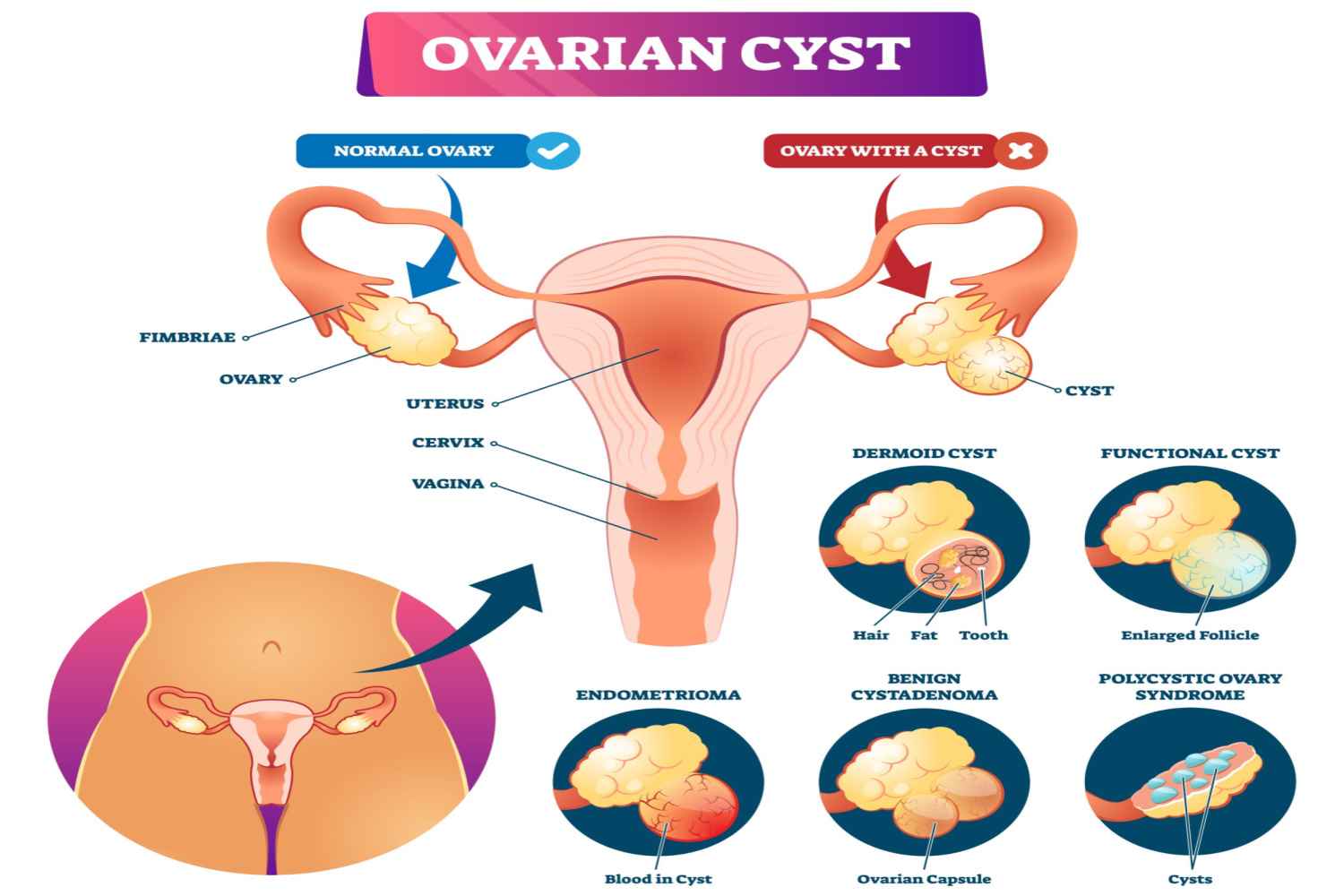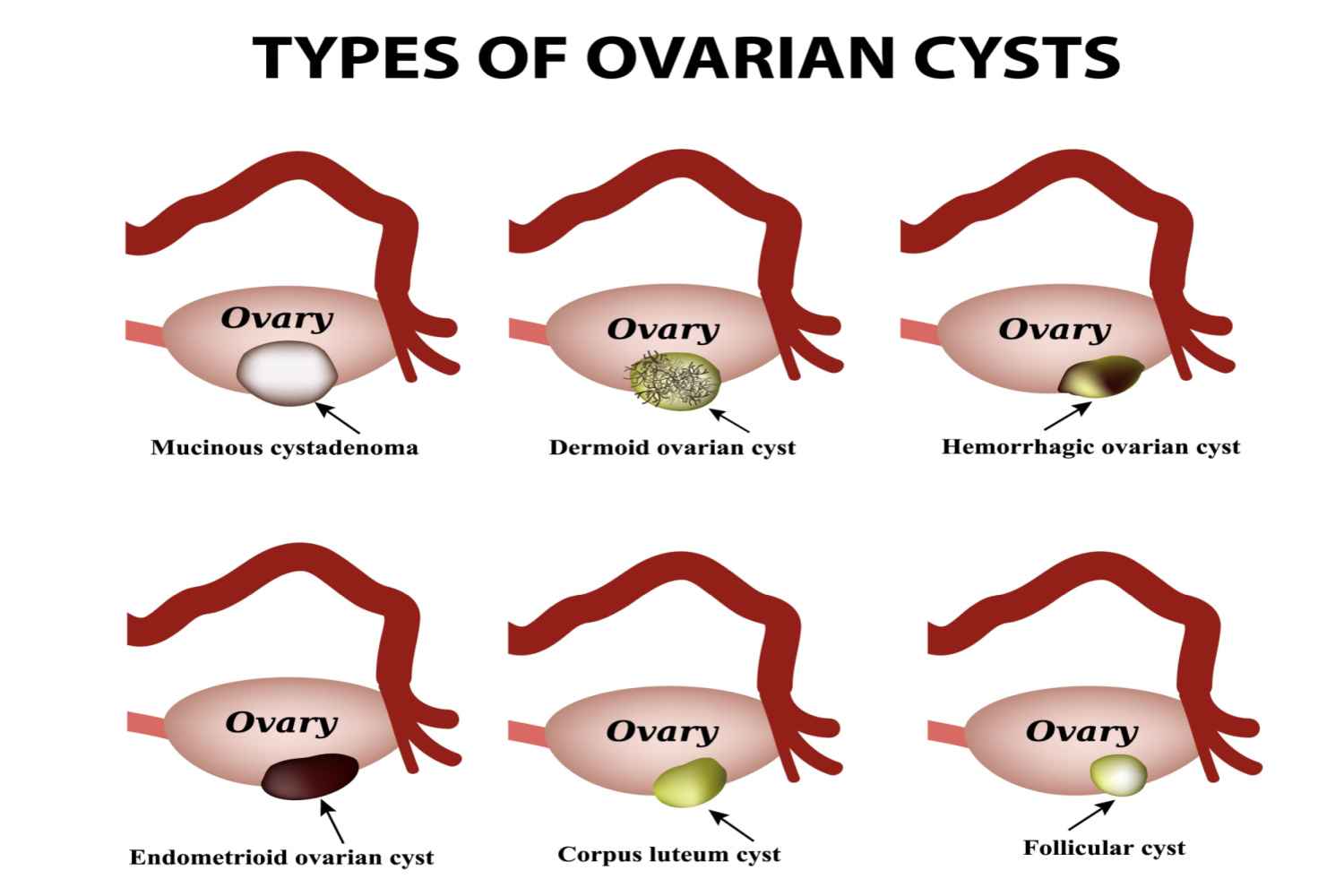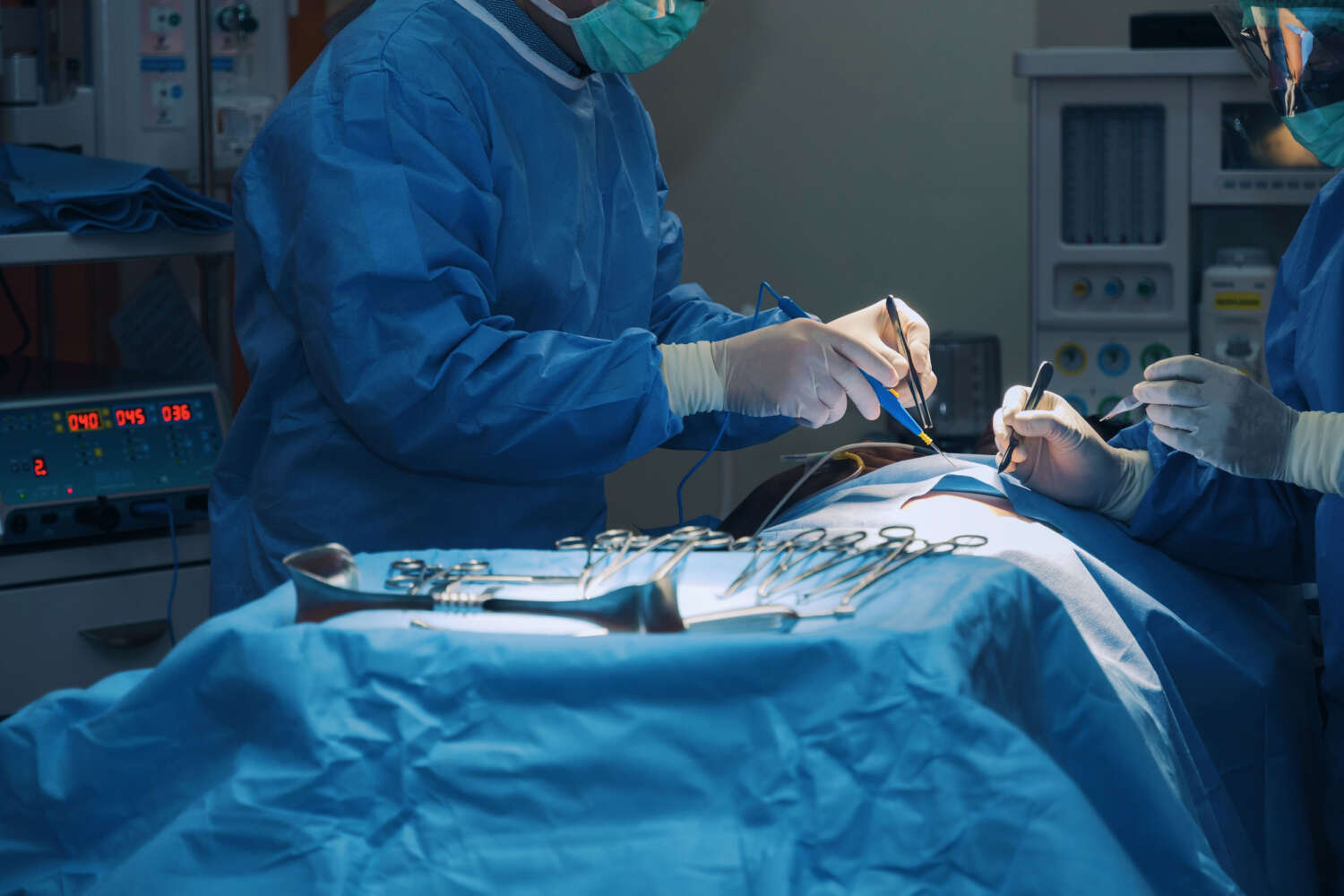
Are you trying to get pregnant? While most women and couples find their journey toward having a baby easy and spontaneous, some may find it difficult and time-consuming. Ovarian cysts are common in most women and can be a cause for concern for women who are trying to conceive. So can ovarian cysts make it difficult to get pregnant?
Several health conditions may upset your plans of having a baby by affecting your fertility. One such health condition is the presence of ovarian cysts. Continue reading to learn more about ovarian cysts and your chances of getting pregnant with them.
In This Article
- What are Ovarian Cysts?
- What Causes an Ovarian Cyst?
- Can Ovarian Cysts Make it Difficult to Get Pregnant?
- Types of Ovarian Cysts and Their Impact on Fertility
- What are the Symptoms Of Ovarian Cysts?
- How is an Ovarian Cyst Diagnosed?
- What are the Possible Complications of Ovarian Cyst?
- What are the Treatment Options for Ovarian Cysts?
- When Should You Meet the Doctor?
- FAQ’s
What are Ovarian Cysts?
Ovarian cysts are small pouches filled with fluid found on or inside the ovary (1). Cysts can naturally happen as a result of the ovulation cycle. In most cases, the cyst will either break or get re-absorbed and are quite common and harmless (2). However, some cysts can affect your pregnancy and can cause pain and bloating.
Ovarian cysts are common among women belonging to the reproductive age. These are usually discovered during routine scans or infertility examinations and checkups.
What Causes an Ovarian Cyst?

Ovulation is an important part of a woman’s menstrual cycle. In this process, the egg released from one of the ovaries travels down the Fallopian tube and becomes an embryo if a sperm manages to penetrate it. When these egg follicles do not grow enough to reach the ovulation stage, they become cysts.
Some of the reasons for ovarian cysts can be
1. Ovulation
Ovulation is the most common cause of the formation of cysts. Post the release of the egg, the follicle from which the egg is released shrinks back to its normal size. Sometimes this shrinking doesn’t happen resulting in cysts. Ovarian cysts can form in one or both ovaries (1A). Sometimes the follicle may not release an egg as it is supposed to. This also may result in the formation of cysts.
2. Hormones
If you are using any drugs to help you ovulate for pregnancy, it can cause functional cysts to form. These cysts will mostly go away on their own as the hormones settle.
3. Pregnancy
Cysts are quite common during pregnancy with many women developing them at the beginning of their pregnancy. These cysts will mostly go away after the placenta forms. Sometimes, if they continue to stay on, or cause issues with your pregnancy, your doctor might surgically remove them.
4. Endometriosis
Women with endometriosis may develop ovarian cysts called endometriomas. In endometriosis, tissue forms outside the uterus. This tissue can attach itself to the ovary and grow into a cyst, this usually happens in the advanced stages of endometriosis.
[Read : Can You Get Pregnant With Endometriosis?]
5. PCOS
Polycystic Ovarian Syndrome can cause multiple small cysts to form in the ovaries. These cysts are small in size and generally harmless but can sometimes cause complications (3).
6. Pelvic Infections
A pelvic infection can spread to the ovaries or Fallopian tubes and result in the formation of cysts.
7. Egg Doesn’t Release
If the egg does not release, ovulation does not occur. The fluid remains inside the follicle and becomes a cyst.
8. Abnormal Cell Reproduction
Abnormal production of cells can result in the formation of cysts in the ovaries.
Can Ovarian Cysts Make it Difficult to Get Pregnant?

The relationship between ovarian cysts and infertility is still not very clear. Research is needed to understand the relationship and the types of treatments needed to address the infertility issue if any.
However, it is generally understood that certain types of cysts are benign and harmless, resolve on their own, and do not have a negative impact on getting pregnant, while the others may be a cause for infertility and need to be treated as a first step towards trying to get pregnant.
Ovarian cysts, in most cases, do not interfere with the production or release of eggs during your menstrual cycle. So, they generally do not affect your chances of getting pregnant. However, the conditions that can lead to ovarian cysts like endometriosis or PCOS can make it difficult to get pregnant.
The ovarian cysts influence the odds of pregnancy when they develop to such a degree that they begin to affect the functioning of the female reproductive system. Cysts on the ovaries prevent the discharge of eggs during ovulation, thereby, preventing the fertilization process. However, this condition can be rectified by means of surgery, thus increasing the chances of a woman getting pregnant.
However, ovarian cysts can cause complications if they are present when you conceive. If they were to twist or rupture, they can cause issues during the delivery. Your doctor will ideally keep a close watch on the cyst, throughout the pregnancy.
[Read : Polycystic Ovarian Syndrome (PCOS) and Pregnancy]
Types of Ovarian Cysts and Their Impact on Fertility

Ovarian cysts are broadly divided into two types depending on their impact on your fertility.
1. Cysts That Do Not Affect Fertility
These ovarian cysts, even though sometimes cause pain and bleeding, may not affect the pregnancy unless their size increases significantly.
1.1 Functional Ovarian Cysts
Functional ovarian cysts are of two types – follicular cysts and luteal cysts (1B). These cysts may develop on the surface of the ovary during your menstrual cycle. Follicles hold a developing egg in the course of a menstrual cycle. In case no fertilization happens, the follicles dissolve, and the menstrual period resumes. Sometimes, the egg doesn’t release properly and the follicles may not dissolve properly, resulting in the formation of cysts.
Mostly these cysts may be innocuous and do not show any signs. They may usually dissolve without any treatment after a couple of menstrual cycles. Sometimes, doctors may suggest hormonal medications such as oral contraceptives to resolve these types of cysts if a cyst becomes too large, it can turn, get ruptured, or bleed and can be extremely painful. Functional cysts do not cause infertility.
1.2 Cystadenomas
They are a kind of benign tumor. They are growths in the ovary that may develop from the tissues at the surface of the ovary. Although they require treatment, they do not affect fertility.
1.3 Dermoid Cysts
Dermoid cysts, also known as benign mature teratomas are common in women between 20 to 40 years of age. These are most commonly found in the ovary but may also occur in different types of tissues, including neural tissue, hair, teeth, bone, thyroid, etc., instead of fluid. In most cases, these cysts do not cause infertility.
2. Cysts That Affect the Chances of Getting Pregnant

The following types of cysts can affect your ability to get pregnant
2.1 Endometriomas
Also known as an endometrioid cyst, an endometrioma is a type of cyst formed when endometrial tissue, develops in the ovaries. The endometrium is the mucous membrane that lines the inner layer of the uterine wall. It affects pregnancy and may bring about lingering pain in the pelvic area during periods. Endometrioid cysts are more often packed with dark, reddish-brown blood, and may vary in size from 0.75-8 inches. Surgery is often considered a necessary treatment option for these cysts.
2.2 Cysts Resulting From PCOS (Polycystic Ovarian Syndrome)
Polycystic ovarian syndrome, or PCOS, is the most common cause of infertility in women. The condition can cause enlarged ovaries and the development of small ovarian cysts due to hormonal imbalance.
Many small cysts in the ovaries along with irregular periods, excess hair growth, acne, and obesity are all symptoms of PCOS. The irregular ovulation associated with PCOS can create problems in conceiving
What are the Symptoms of Ovarian Cysts?

Most women who have ovarian cysts do not even know about it (1C). But if these cysts become very large, or rupture, or block the flow of blood to ovaries, then the following symptoms may appear:
- Change in the menstrual cycle. The periods will be heavier, lighter, or irregular
- Pain in the belly or pelvis
- Pressure on the bowel or bladder
- Feeling exhausted
- Frequent urination
- Bloating and swelling
How is an Ovarian Cyst Diagnosed?
Once the symptoms of ovarian cysts surface, the doctor will be able to diagnose it through a pelvic examination. They can also use diagnostic methods like CT scans, Ultrasound scans, transvaginal scans, and MRI scans to confirm an ovarian cyst.
What are the Possible Complications of Ovarian Cyst?

Most ovarian cysts are harmless and will go away on their own without any intervention. Sometimes, they may require surgery to remove them. You need to monitor the cyst closely by taking a follow-up scan to ensure the cyst does not grow in size if your cyst is growing in size, you need to monitor it very closely and take tests to rule out cancer. However, some complications may arise due to ovarian cysts.
Some of the possible complications of such ovarian cysts are:
a. Infection
In case of an infection, the cyst will fill up with bacteria and pus. If this cyst bursts, the pus and bacteria can enter the bloodstream, resulting in blood poisoning.
b. Cancer
If the cyst is not benign, your doctor will send a biopsy of the cyst for testing. If the cyst forms after menopause, the risk of it being cancerous is higher.
c. Rupture
Functional cysts usually rupture and go away on their own without causing any trouble. Sometimes, if the cyst is too big and ruptures, it can cause severe abdominal pain and discomfort. It can even cause your belly to swell.
d. Torsion
When the cyst keeps growing, it can distort the shape of your ovaries. It increases the risk of twisting your ovaries. The twisting can cut the blood flow to your ovary, and your ovary will die. You may experience extreme pain, vomiting, or nausea.
What are the Treatment Options For Ovarian Cysts?

Your doctor will suggest a treatment for your ovarian cyst depending on the size of your cyst, what caused it, your age, and other symptoms. Some ways to treat ovarian cysts are:
1. Waiting
Since most cysts go away on their own, your doctor will suggest you wait and watch. You will have an ultra-sound a few weeks after the first. The ultrasound shows if the cyst has gone, whether it remains, or if it has grown in size.
2. Medications
Since these cysts typically form during ovulation, your doctor might give medications such as oral contraceptive pills that will stop your ovulation. This also reduces the risk of such cyst formation in the future.
3. Surgery
If the cyst is too big, interfering with or affecting your pregnancy, your doctor will suggest removing the cyst using laparoscopy or laparotomy. Laparoscopy helps remove small cysts with just a small incision. Laparotomy helps remove big cysts.
4. Biopsy
If your doctor suspects the cyst to be cancerous, they will remove the cyst and send it to the lab for testing. The test will tell if the cyst is benign or cancerous. The treatment depends on this result.
When Should You Meet the Doctor?

When you feel something is off in your body, you need to consult a doctor to ensure you are in no danger or harm. You need to consult a doctor at the earliest if:
- You are suffering from irregular, painful, or late periods
- You have abdominal pain that does not go away
- You notice your abdomen is getting bigger, it could be swollen
- It is difficult to urinate and empty your bladder
- You fall ill more often
- Having sexual intercourse is painful
- Your abdomen always feels full due to constipation, bloating, or some discomfort
- You are losing weight for no reason
- You seem to be gaining weight continuously
Talk to your doctor about the various treatment options available that will help to improve your chances of getting pregnant if you’ve been diagnosed with an ovarian cyst.
FAQ’s
1. Do Ovarian Cysts Disappear By Themselves?
Yes, most ovarian cysts disappear on their own over time. Only some types of cysts need surgery for safe removal.
2. Can Ovarian Cysts Affect Future Pregnancies?
An ovarian cyst generally has no bearing on pregnancy. If it grows in size, obstructs the uterine passage, or causes severe pain, then it might impact your future pregnancies, otherwise no.
3. Can I Still Get Pregnant With Ovarian Cyst?
This completely depends on the kind of cyst you have, but in general, it is possible to get pregnant with most types of cysts since they may disappear on their own with time. Some kinds of cysts such as endometriomas and cysts resulting from polycystic ovarian syndrome may delay your conception process and may need medical intervention.
4. How Can I Get Pregnant Faster With Ovarian Cyst?
In most cases, ovarian cysts may not create problems with fertility and you may get pregnant without any issues. But certain types of ovarian cysts such as endometriomas or conditions such as PCOS may cause infertility issues. Timely consultations with the doctor, following treatment protocols as suggested by the doctor, and making lifestyle changes may help get pregnant faster with ovarian cysts.
5. What is Ovarian Torsion?
Ovarian torsion is one of the symptoms of ovarian cysts and occurs when larger ovarian cysts rotate and twist around their root resulting in the cutting off of blood supply to the ovaries. This condition may result in pelvic and/or abdominal pain along with nausea and vomiting. In some cases, this condition may require surgical intervention
References
- Ovarian Cyst – StatPearls – [https://www.ncbi.nlm.nih.gov/books/NBK560541/]
- Ovarian Cyst – Abstract – [https://europepmc.org/article/nbk/nbk560541]
- Polycystic ovary syndrome (PCOS), an inflammatory, systemic, lifestyle endocrinopathy – [https://www.sciencedirect.com/science/article/abs/pii/S0960076018300396]
Read Also: Is Ovary Size Important To Get Pregnant

1 Comment
I’ve tried with my partner to have a kid for the past 4 months and nothing seems to work but i was in hospital last year they said i’ve got a cyst on my ovaries!